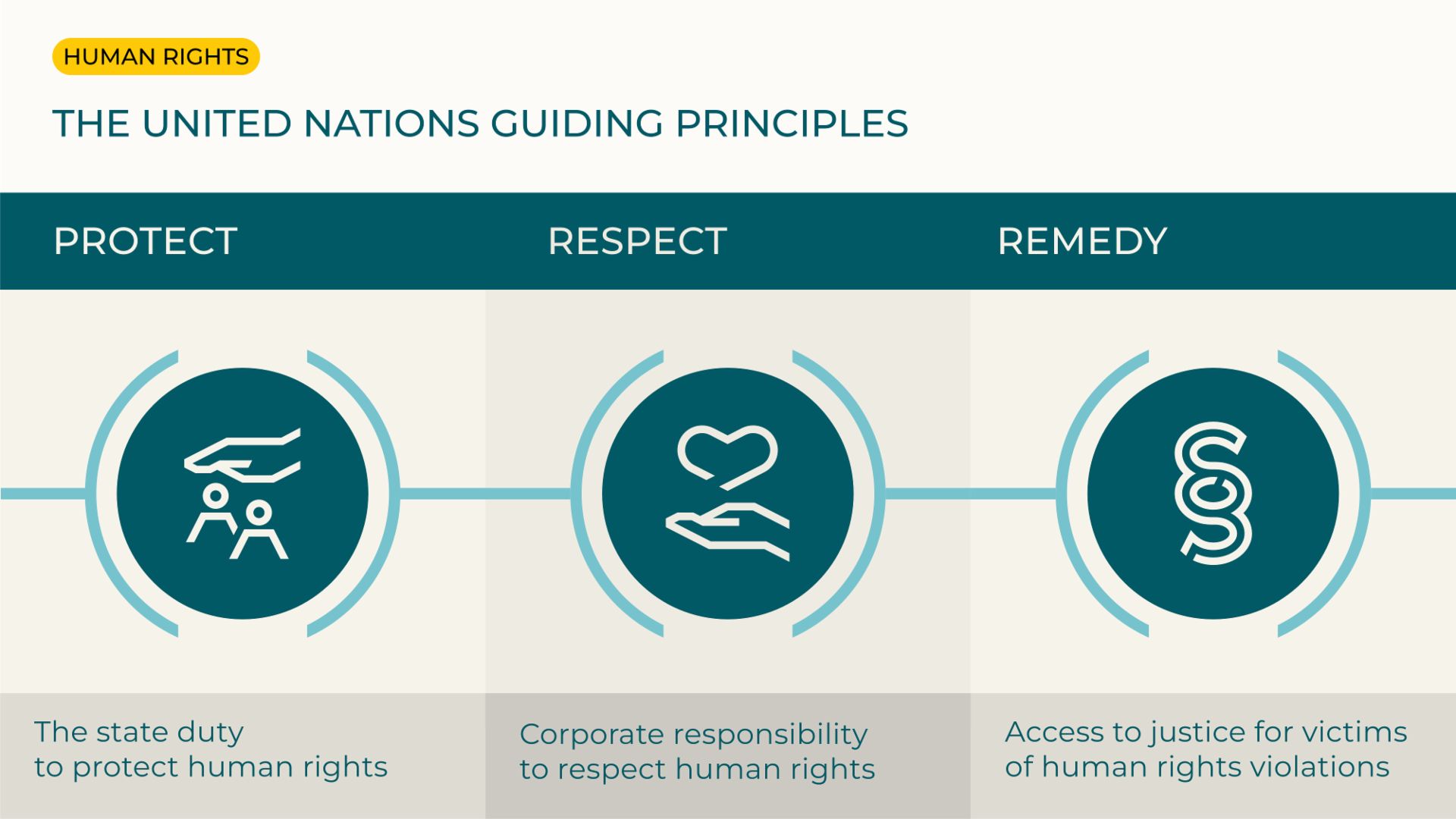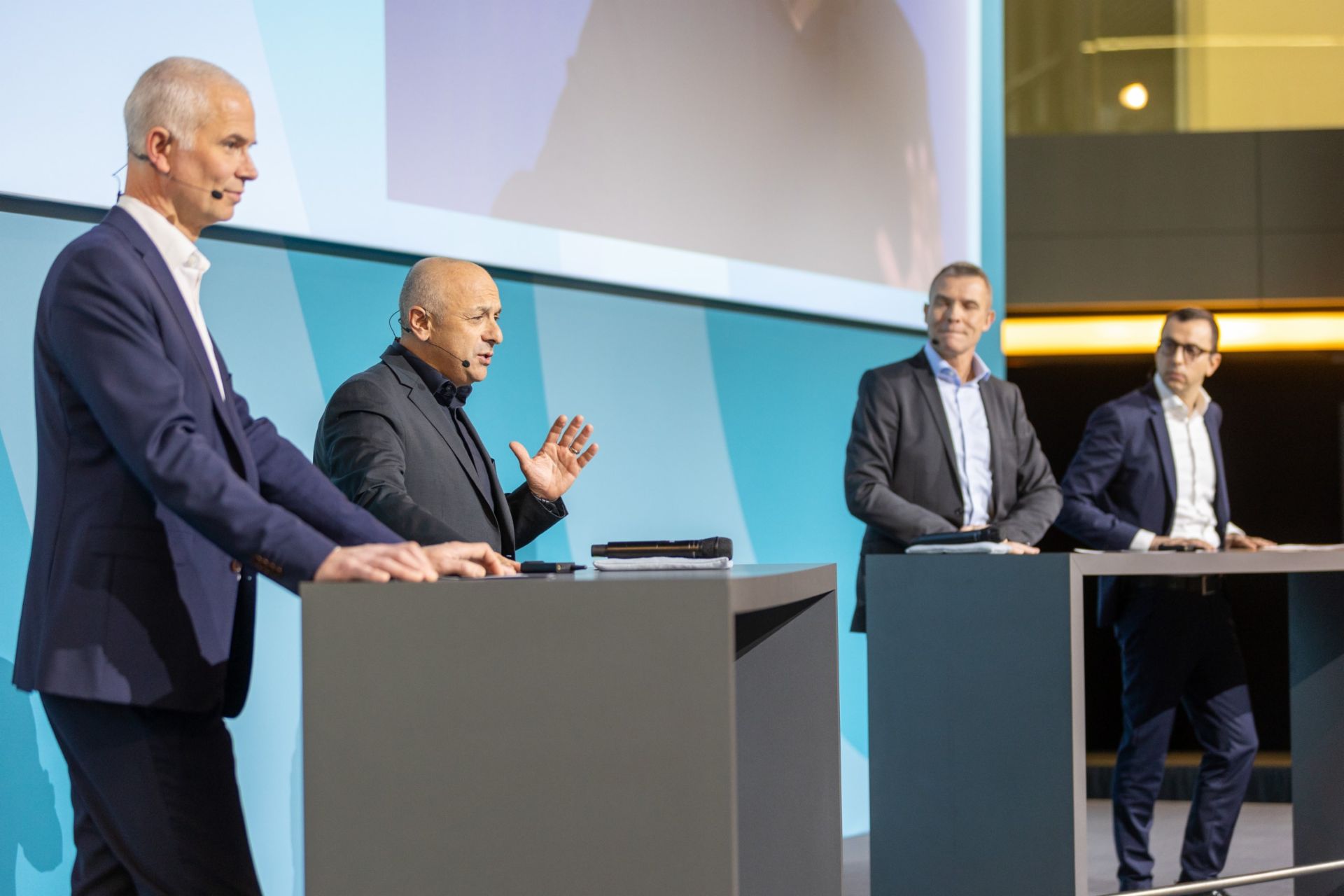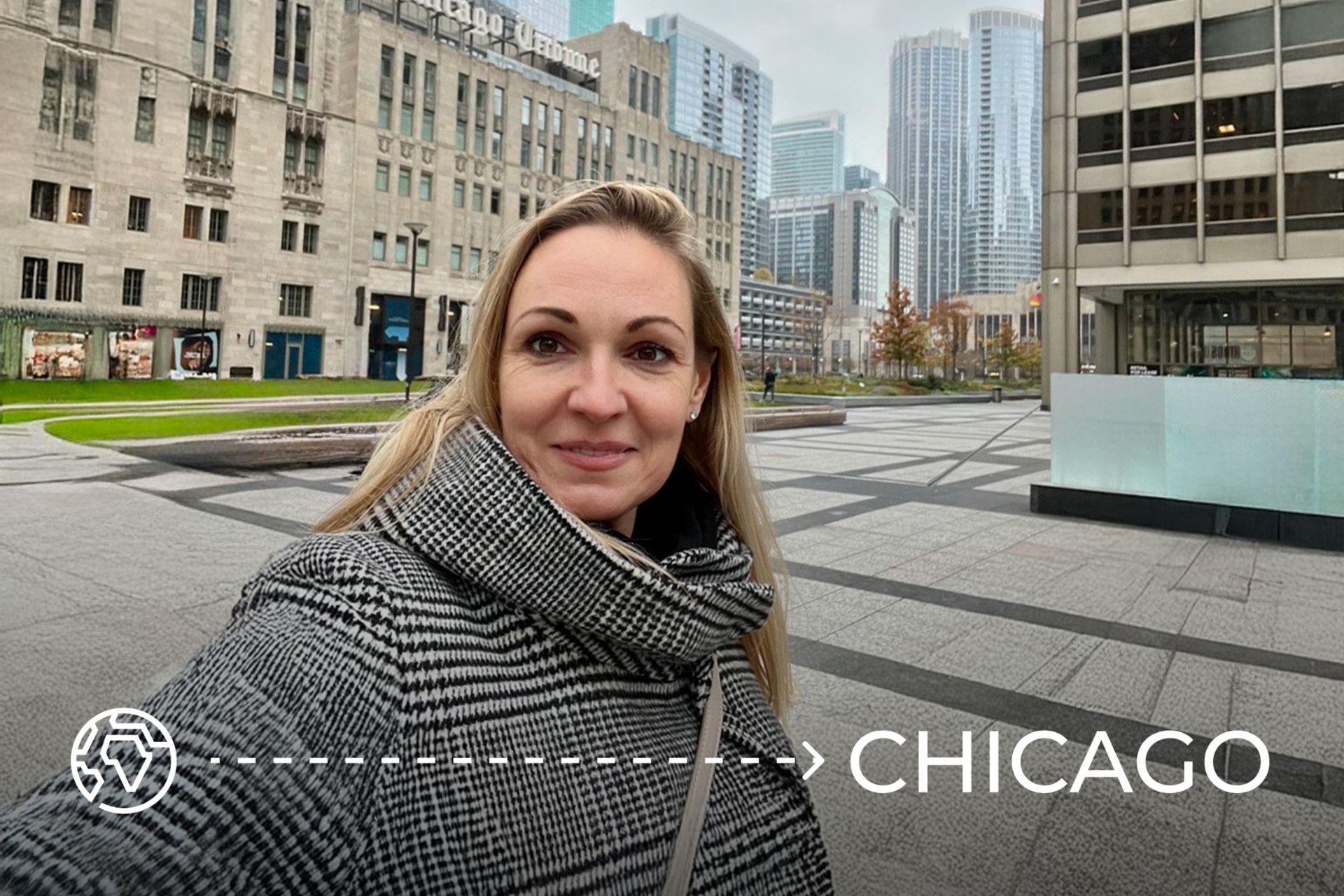TRATON recently marked the first anniversary of its Human Rights Committee (HRC), a Company-wide initiative introduced to monitor Company’s efforts to comply with human rights due diligence legislation. The HRC serves as a guiding light within TRATON when it comes to the effectiveness review of human rights measures across all functions that safeguard the dignity and wellbeing of people and communities affected by the Company’s operations.

As a global leader in transport solutions, the TRATON GROUP recognizes the impact its operations could potentially have on individuals and communities worldwide. Yasmin Mansour, an international law and human rights lawyer, plays a key role in supporting the HRC, along with holding the position of Business & Human Rights Expert at TRATON SE. “When setting up the HRC, we considered how the topic of human rights is intersectional and cross-functional, and how each TRATON function is responsible for integrating and adopting measures supporting the protection of human rights within its respective area. The purpose of the HRC is to ensure that our human rights management system is effective and, when necessary, can recommend adaptation as needed.”
Human rights topics are important in all areas of business, from governance, risk and compliance (GRC), human resources, environmental compliance and sustainability, to legal and export control. The HRC therefore brings together these functions to integrate standards into their own areas. Committee members meet to discuss a range of topics, including risk analysis processes and TRATON’s Complaints Procedure that allows the Company to address any potential adverse impact on human rights within its business operations.
TRATON also places a special focus on educating employees on the importance of these topics. “Last year, TRATON hosted an ‘Anti-Corruption & Human Rights Day’. We also regularly host business and human rights training sessions and events. In these sessions, we inform stakeholders about human rights and the frameworks we’re working with, providing study cases to make them more tangible and understandable,” Mansour says.
Safeguarding mechanisms
With the ever-changing global human rights landscape, TRATON constantly reviews and adopts measures aiming to protect human rights and the environment. “Risk analysis is an integral part of the human rights due diligence cycle, because it allows us to identify our impact from both a human rights and environmental perspective, and address them accordingly,” explains Mansour.
Human rights and environmental obligations not only apply to operations within the TRATON GROUP, but also to the conduct of its suppliers and business partners. In recent years, TRATON has integrated a series of mechanisms that include preventive and mitigative measures, aiming to promote human rights and responsible environmental conduct throughout its entire supply chain. “Such measures include specific training, updates of internal policies, and the inclusion of human rights within our recently updated Employee Code of Conduct as well as in our Code of Conduct for Suppliers and Business Partners,” Mansour explains.
“Establishing a proper complaints procedure to address potential human rights and environmental violations is a vital component for an effective human rights management system,” says Mansour. TRATON operates various whistleblowing channels where suspected violations can be reported. Reports of human rights and environmental violations are investigated in accordance with the Rules of Procedure for the TRATON GROUP Complaints Procedure, and the principles defined in the TRATON GROUP’s policy on internal investigations, such as the protection of whistleblowers, procedural fairness, confidentiality, and principle of legality. Results of investigations are reported to the HRC, TRATON management board, and other responsible committees that decide if any further measures must be implemented.

The protection of human rights is fundamental for TRATON: the TRATON GROUP aims to conduct its practices in accordance with international standards and principles. At the heart of this, the Company strives to operate within the lines of the UN Guiding Principles on Business and Human Rights, an international framework for improving business and human rights standards and practices.
Protection & Promotion
TRATON SE established its commitment to a diverse and inclusive workforce in 2017, when it signed the German Diversity Charter, before becoming a member in 2020. This corporate initiative aims to promote the recognition, appreciation, and integration of diversity into Germany’s business culture. Organizations should create a working environment free of biases where each employee is valued regardless of age, ethnic origin and nationality, gender, religion and worldview, physical and mental ability, sexual orientation, and social background.
The TRATON GROUP’s Scania, MAN Truck & Bus, Navistar, and Volkswagen Truck & Bus (VWTB) brands have implemented a range of actions and initiatives that underscore the Company’s commitment to human- and environment-related rights.

In line with the ambitions of the TRATON GROUP, Scania and MAN are working towards sustainable transport – and this goes beyond reducing their environmental impact: the goal is fair transport. Scania and MAN are part of the CSR Europe-led Responsible Trucking initiative, moving the industry towards the implementation of higher social standards. Together, they aim for the highest human rights, social sustainability, and safety standards for themselves and their suppliers.
Meanwhile, in Brazil, VWTB has initiated the New Horizons program for people with disabilities, which provides them with an opportunity to pursue higher education. All participants receive a full scholarship for specific courses such as engineering, business administration, or finance. At the end of the program, graduates are promoted to positions at VWTB related to their field of study.
In the Mexico, Navistar’s Escobedo Assembly Plant (EAP) has focused on creating unique ways to promote environmental objectives and counteract climate change. Sixty EAP employees recently celebrated National Tree Day in Mexico by volunteering for a reforestation campaign. They planted more than 30 trees on facility grounds and in an adjacent area devastated by fire. Actions like these seek to strengthen EAP’s social responsibility towards its community, employees, customers, suppliers, and business partners.
The way forward
TRATON continues to develop and improve its human rights due diligence processes and adheres to all existing legislation. In particular, the Company will consider the results of its risk analyses, as well as insights generated from its discussions with relevant stakeholders.

For example, this year TRATON will send its first report detailing a full account of the measures it has taken to ensure compliance with its human rights due diligence obligations to the German Federal Office for Economic Affairs and Export Control (BAFA) in accordance with the German Supply Chain Act. Furthermore, the Company will continue to observe new due diligence legislation related to human rights, including the forthcoming
EU Corporate Sustainability Due Diligence Directive (CSDDD).
Together, these steps will enable TRATON to identify human rights challenges and continuously enhance the effectiveness of its human rights and environmental protection measures. Its aim is to prevent, mitigate, and remedy any adverse impacts towards people and our planet.


